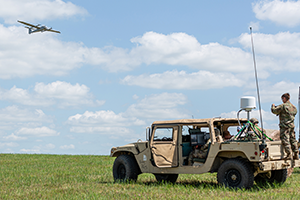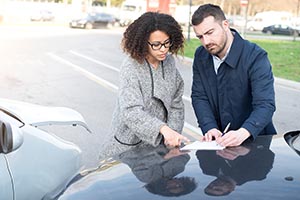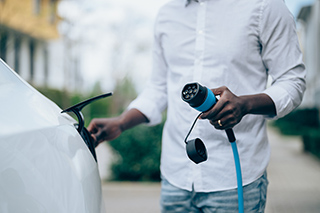With car and truck prices rising it's a good idea to consider all your options before taking the plunge.
The average new vehicle price in the United States is at a record high at more than $43,000, which is nearly 10% higher than last year. And it’s the same for used vehicles with average prices coming in at $25,000, or 28% higher than a year ago, according to Kelley Blue Book. In other words, buying a new or used car in today’s economy can be pricey.
For many, the sticker shock means financing the purchase is a necessity. If you are thinking about taking out a loan for your next car, here are some things to consider.
Is now the right time to buy a car?
In normal years, it can be fun to think about getting a new car. Maybe you want the latest model, a vehicle that uses alternative fuel or you want to switch from a truck to a convertible. But with the current economy it can also be stressful. First, determine whether an upgrade is necessary. Here are some key signs that it may be time to consider a new vehicle:
- You can't rely on your vehicle: You’re regularly late for work or appointments because you can’t depend on your vehicle.
- Repairs and maintenance bills are growing: Although it often makes financial sense to repair a vehicle rather than replace it, you’ll need to compare the costs to decide which option is best for you.
- You’re ready to upgrade to newer safety features: If you are interested in the newest safety features like lane departure warning system, collision avoidance system, blind spot monitoring, electronic stability control or side airbags, then an upgrade might be justified.
- Your lifestyle requires a different vehicle: Recently having children or transitioning to a job with a longer commute might necessitate a new vehicle with more space or better gas mileage.
If you can "check the box" for any of the above, upgrading your vehicle might make sense.
Deciding between new and used vehicles
There can be a big difference between used and new car financing. Before you decide which car is the best choice for you, consider the following:
Benefits of buying a new car include safety checks, warranties and factory perfect condition. Drawbacks include the much higher price tag.
Benefits of buying a used car include lower costs and certified safety checks that ensure the vehicle is free from major problems (if you buy from a dealer that offers that service). Drawbacks might include a less-than-perfect interior and exterior. And if you buy from a private party, make sure to have a trusted mechanic check the car for problems.
Determine what you can afford, and then weight the pros and cons of new vs. used. Also consider making a list of "must haves" for your car. Make a note of certain features - keyless entry, top safety rating, etc - that you consider non-negotiable. This list may determine whether you buy a new car with fewer bells and whistles, or a certified used car that gets you all the features on your list.
Always remember: The sticker price is not the only cost of owning a car. It's also important to factor in the price of vehicle registration, car insurance, tires, fuel and regularly scheduled maintenance.
Whatever you decide, you will likely be unhappy if you end up with a car payment that is more than you can comfortably afford, and any "extra costs" are a cause of financial stress.
Finding the best auto loans
Once you’ve decided that now is the best time to buy a car, it’s time to consider an auto loan. The terms of the loan can vary depending on your credit score, your location and where you finance the vehicle. Compare costs between your bank and car dealerships to find the best deal. There can also be differences in rates for either new or used car loans. Remember that the length of the loan, as well as the rates, will affect the total you pay over the life of the loan.
Due diligence: Making the right purchase
If you are financing a used car, doing research can help ensure you don’t fall for a deal that’s too good to be true. Use resources like the Kelley Blue Book and NADA (National Automobile Dealers Association) to determine the true value of a used vehicle, ask the seller for copies of the car’s service records and research the VIN (vehicle identification number) on sites like CARFAX or AutoCheck.
Have you considered leasing?
There are many pros and cons to buying or leasing a vehicle. For example, if you prefer driving a newer car, a lease can give you the opportunity to change vehicles every few years. Purchasing a car will typically have a higher monthly payment, however, once your car is paid off, you can enjoy your vehicle without the monthly payment.
Ready to find your next ride? Find out what you need to know before buying your next car. Already picked out you dream car? Learn more about auto loans.














































































